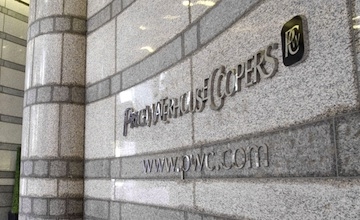Radical reforms to pensions that enable them to be taxed like ISAs appear to have won public support.
George Osborne has opened up the possibility of such changes in the summer Budget and according to research published today by PWC, 40% of working adults would favour this over the current system.
A green paper was launched after the Budget to give “careful consideration” to this idea.
{desktop}{/desktop}{mobile}{/mobile}
Mr Osborne told Parliament: “While we’ve taken important steps with our new single tier pension and generous new ISA, I am open to further radical change. Pensions could be taxed like ISAs.
“You pay in from taxed income – and its tax free when you take it out. And in-between it receives a top-up from the government.
“This idea, and others like it, need careful and public consideration before we take any steps.”
The Green Paper “asks questions, invites views, and takes care not to pre-judge the answer”, he said.
PwC’s survey of 1,197 working adults found 27% preferred the current system when asked to choose the most appealing tax scenario for their pension.
But the new proposal to move pensions towards a similar tax treatment as ISAs was by far the most popular preference, researchers stated.
Four in 10 respondents chose this answer, saying they would rather be taxed while they are working, than in their retirement. People also said it would help them better plan for their retirement as they won’t have to factor in tax deductions.
Philip Smith, head of PwC’s defined contribution pensions team, said: “Moving towards an ISA-style tax system would create consistency across people’s savings pots and help people plan for their future with more certainty.”
Only one in seven people say the current tax exemptions on pension contributions incentivise them to save.
The majority of respondents didn’t understand how pensions were taxed, with two thirds unable to correctly identify the current system.
Six in 10 people said that constant changes by the Government to how pensions are taxed is the biggest barrier putting them off saving more into their pension.
Mr Smith said: “People want a once in a lifetime overhaul of how pensions are taxed to create a simple and stable system which they can understand and trust. “Our research shows people would much rather take the tax hit on their retirement savings while they are working, rather than having to worry about tax deductions in their retirement.
“However, moving to a new tax system for pensions is no easy task for an industry that is already grappling with the pensions freedom changes. This would require a huge re-think from employers, pension providers and the Government to how they provide pensions.”
Raj Mody, head of pensions consulting at PwC, said: “The reality is that when it comes to tying up money for the long-term, people need an incentive. Otherwise why would you bother saving for your retirement when faced with more immediate pressures on your finances?”

